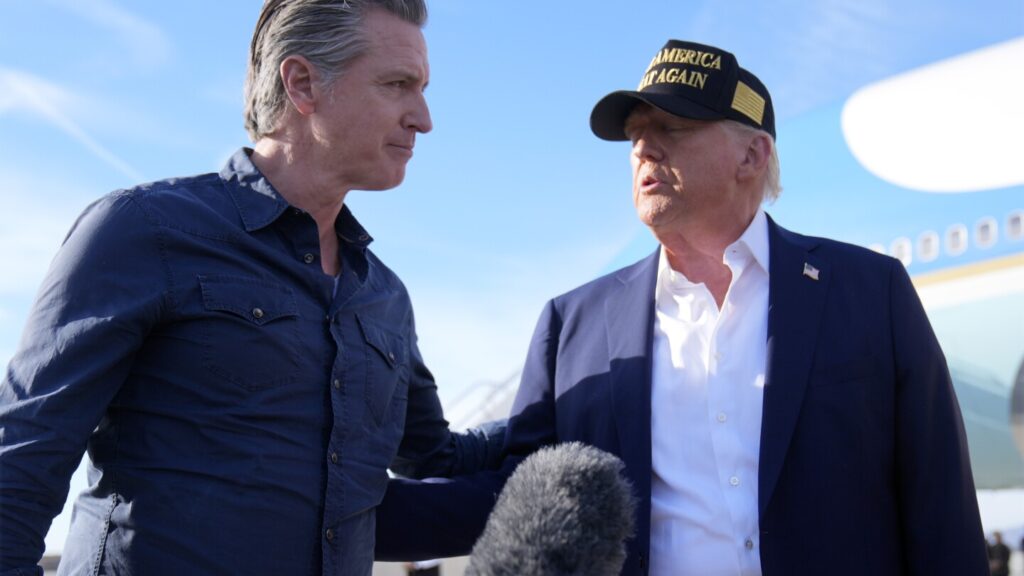In a dramatic turn of events, the once-amicable relationship between California Governor Gavin Newsom and President Donald Trump has soured, leading to a high-profile clash between the two leaders. The dispute escalated when Trump federalized the National Guard in Los Angeles against Newsom’s wishes, prompting the governor to sue the administration for what he deemed an abuse of power veering towards authoritarianism. This showdown between the Republican president and the Democratic governor, set against the backdrop of domestic troop deployments and immigration enforcement, highlights the broader political tensions at play.
Trump’s longstanding animosity towards California, a state that has consistently rejected him, has fueled his confrontations with Newsom. From threats to intervene in the state’s homeless crisis to withholding wildfire aid and stoking fears about illegal immigration, Trump has consistently criticized California under Newsom’s leadership. Meanwhile, Newsom’s political maneuvers have positioned him as a prominent figure in the Democratic Party, drawing both praise and scrutiny for his confrontations with Trump.
Despite past instances of cooperation, such as joint efforts in wildfire recovery and COVID-19 response, the rift between Trump and Newsom has widened, with the governor warning of democracy being under assault. Newsom’s legal challenges against the Trump administration, including a recent lawsuit over immigration raids, underscore the ongoing power struggle between the federal government and California. As Newsom seeks to assert his leadership in the face of Trump’s antagonism, the implications of this feud extend beyond state boundaries and into the realm of national politics.

